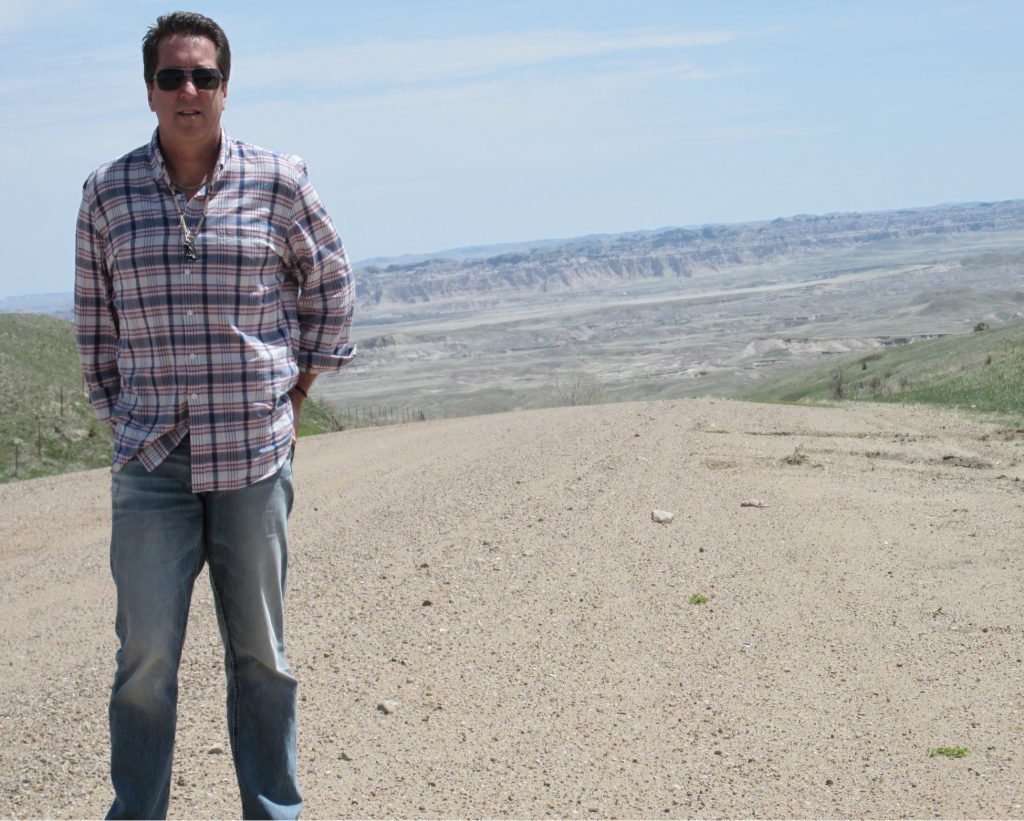Kevin Hancock, President of Hancock Lumber, has spasmodic dysphonia
As president of Hancock Lumber Company, Kevin Hancock leads a sixth generation family business that has operated since 1848. Headquartered in Casco, Maine, the company has 10 retail stores and three sawmills, and employs 430 people. The company also owns and manages 12,000 acres of timberland in Cumberland and Oxford counties.Kevin lives with his wife, Alison, and daughters, Abby and Sydney, in Casco, ME. He also has spasmodic dysphonia.

I have had adductor spasmodic dysphonia since 2010. I acquired the disorder at the peak of the housing and mortgage markets’ economic collapse. That period put a lot of pressure on our company. It was a pretty stressful time for me. I felt a lot of responsibility to protect “my tribe.” I think this is what triggered the disorder. I was 44 years old at the time. When I think back, my throat began getting tight while I was speaking. I originally thought I had a cold, but it persisted for months. Soon, without realizing it, I began tipping my chin down toward my chest when I spoke as if I was instinctively protecting the area.
Diagnosis
By then, everyone was asking me what was wrong. Others noticed before I did, which I find interesting in hindsight. It took about nine months from the time I realized something was wrong to the time I was diagnosed. It got a bit scary because initially no one could really figure out what was wrong. The specialist I saw in Portland, Maine thought I just needed some speech therapy. When my condition continued to get worse, I ended up at Massachusetts Eye and Ear in Boston where Dr. Song diagnosed me. I had never heard of SD at the time, and had never met anyone who had the disorder.
Treatment
In regard to treatment, I take periodic, small doses of Botox® every 3-4 months. I also take a half dose of omeprazole daily. Most importantly, I have spent a lot of time with two speech therapists, Deborah Pelletier in Maine and Connie Pike in Florida. I believe in a holistic approach to this disorder. It has prompted me to do a good bit of introspective thinking and soul searching. I spend much more time now doing things that serve my soul than I did before I acquired SD. In this way, SD has actually been a blessing.
SD is a blessing
It forced me to slow down and think more deeply about who I was. SD makes you listen; that’s its hidden blessing. SD has only had a subtle impact on my family life—all positive. It has made me, as the Dad, just a little bit less the center of attention. I listen to my family more; we all share the stage.
With my career, SD has had a massive impact—also for the better. At first it was very scary. I couldn’t imagine how I would help run a company without the consistent, comfortable use of my voice. After a year or two, however, I began to see the opportunity. The opportunity was to use SD as a catalyst to make everyone else’s voice in our company stronger. We have 430 employees spread out across 10 stores and 3 sawmills. Traditionally, I was the company leader who hustled around to be the ‘voice’ of the organization. Suddenly, I couldn’t really do that anymore. “So, what if everyone became the voice of the company?” I eventually thought to myself.
An organization where everyone leads and feels heard would be much more powerful than one in which just a few people hold all the power. This was the organizational blessing of acquiring SD. I came to see the business as a place where everyone could have a voice. Subtle changes in thinking can have a big impact, and this small idea has changed our whole company. Slowing down, listening to my own soul, and doing things that come from my heart. Spasmodic dysphonia helped me learn to live a little bit less with my head and a little bit more with my heart.
How do you explain spasmodic dysphonia to others?
I tell people that when I go to speak, I feel like I am being strangled. I just run out of air after a single sentence or two sometimes. If I push through this, I get a dizzy, buzzing sensation all along the top of my head (like I am not getting enough air). When my SD is at its worst it makes me not want to speak very much because it takes such a physical effort to do so.
What is the primary challenge of living with SD?
The primary challenge is also the primary blessing—it is learning to hold back…learning to do less, not more. Doing less can be very powerful, even more productive than doing more. You become much more strategic in your actions, in where you choose to invest your voice. We have been taught that doing more is being more productive, but that’s not actually true. Being busy and being successful are two different things entirely. I am not sure I would have learned this without SD.
What advice would you give someone newly diagnosed with spasmodic dysphonia?
First, find peers who also have the disorder and get connected with them. You will quickly learn you are not alone. The NSDA is a great way to do this. Second, find quiet time where you can just reflect and listen to the whispers of your own soul. This is the hidden blessing of SD—we are given a chance to quiet down and hear the whispers.


